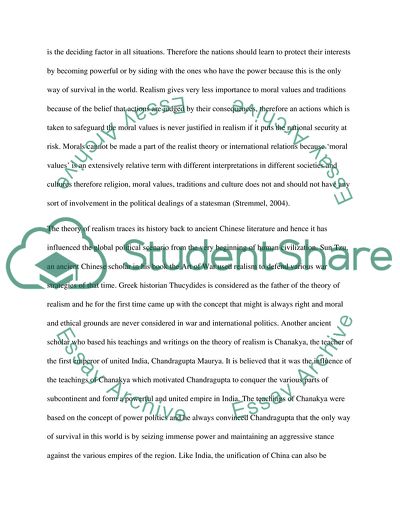Cite this document
(International Relations: Critical Concepts in Political Science Essay Example | Topics and Well Written Essays - 2500 words, n.d.)
International Relations: Critical Concepts in Political Science Essay Example | Topics and Well Written Essays - 2500 words. https://studentshare.org/politics/1767558-critically-evaluate-realism-liberalism-and-marxism-in-relation-to-global-politics
International Relations: Critical Concepts in Political Science Essay Example | Topics and Well Written Essays - 2500 words. https://studentshare.org/politics/1767558-critically-evaluate-realism-liberalism-and-marxism-in-relation-to-global-politics
(International Relations: Critical Concepts in Political Science Essay Example | Topics and Well Written Essays - 2500 Words)
International Relations: Critical Concepts in Political Science Essay Example | Topics and Well Written Essays - 2500 Words. https://studentshare.org/politics/1767558-critically-evaluate-realism-liberalism-and-marxism-in-relation-to-global-politics.
International Relations: Critical Concepts in Political Science Essay Example | Topics and Well Written Essays - 2500 Words. https://studentshare.org/politics/1767558-critically-evaluate-realism-liberalism-and-marxism-in-relation-to-global-politics.
“International Relations: Critical Concepts in Political Science Essay Example | Topics and Well Written Essays - 2500 Words”. https://studentshare.org/politics/1767558-critically-evaluate-realism-liberalism-and-marxism-in-relation-to-global-politics.


